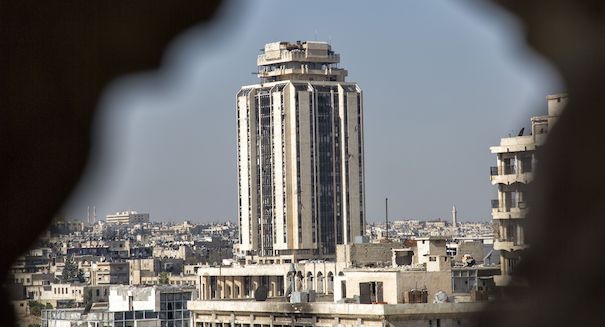Registration
You will receive an email confirming your registration.
While policy debates on Syria have overwhelmingly focused on military developments and political negotiations, a less explored consequence of the hyper-localized war has been the profound reshaping of a less visible but crucial actor, the Syrian state. The conflict has induced a de facto renegotiation of the power balance between the central authority in Damascus—itself a traditionally centralized actor—and emerging local powers. Internally, this has led all players to invest at the local level in order to preserve (or establish) power. External actors have also contributed to this process of localization, though their military and humanitarian roles.
The Carnegie Middle East Center—in partnership with the International Crisis Group—brought together two panels to discuss localization and self-administration in Syria. The first panel assessed how “localization” both impacts and is exploited by primary actors on the ground inside Syria. The second panel discussed how these local dynamics impact the strategies and policies pursued by the conflict's external actors, and the challenges and opportunities they present moving forward.
Program
11:30 AM – 1:00 PM | Predominance of Local Dynamics
Maria Fantappie, senior analyst on Iraq at the International Crisis Group
Sam Heller, fellow at the Century Foundation
Ammar Kahf, executive director of Omran for Strategic Studies and a member of the Board of Directors of the Syrian Forum
Moderator: Kheder Khaddour, nonresident scholar at the Carnegie Middle East Center
1:00 – 2:00 PM | Lunch Break
2:00 – 3:30 PM | Strategies and Policies of External Actors
Malik al-Abdeh, consultant at Humanitarian Dialogue Center
Noah Bonsey, senior analyst on Syria at the International Crisis Group
Peter Harling, founder and director of Synaps
Moderator: Maha Yahya, director of the Carnegie Middle East Center
